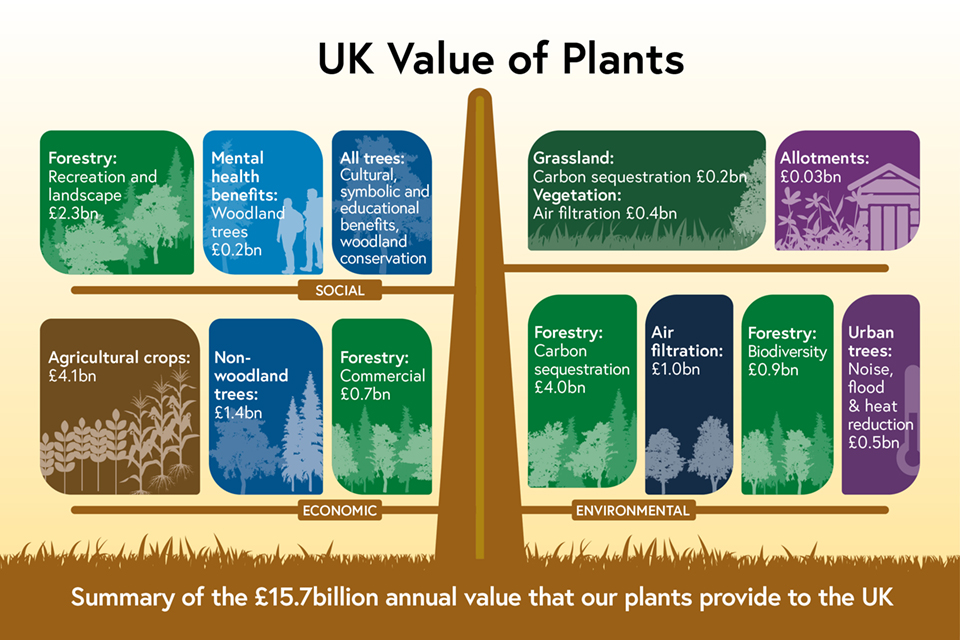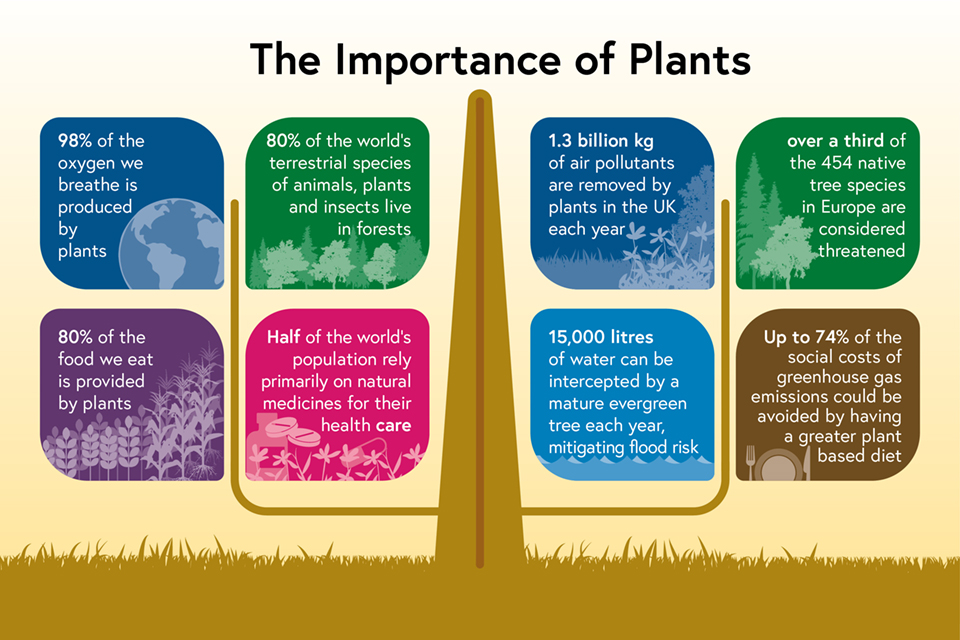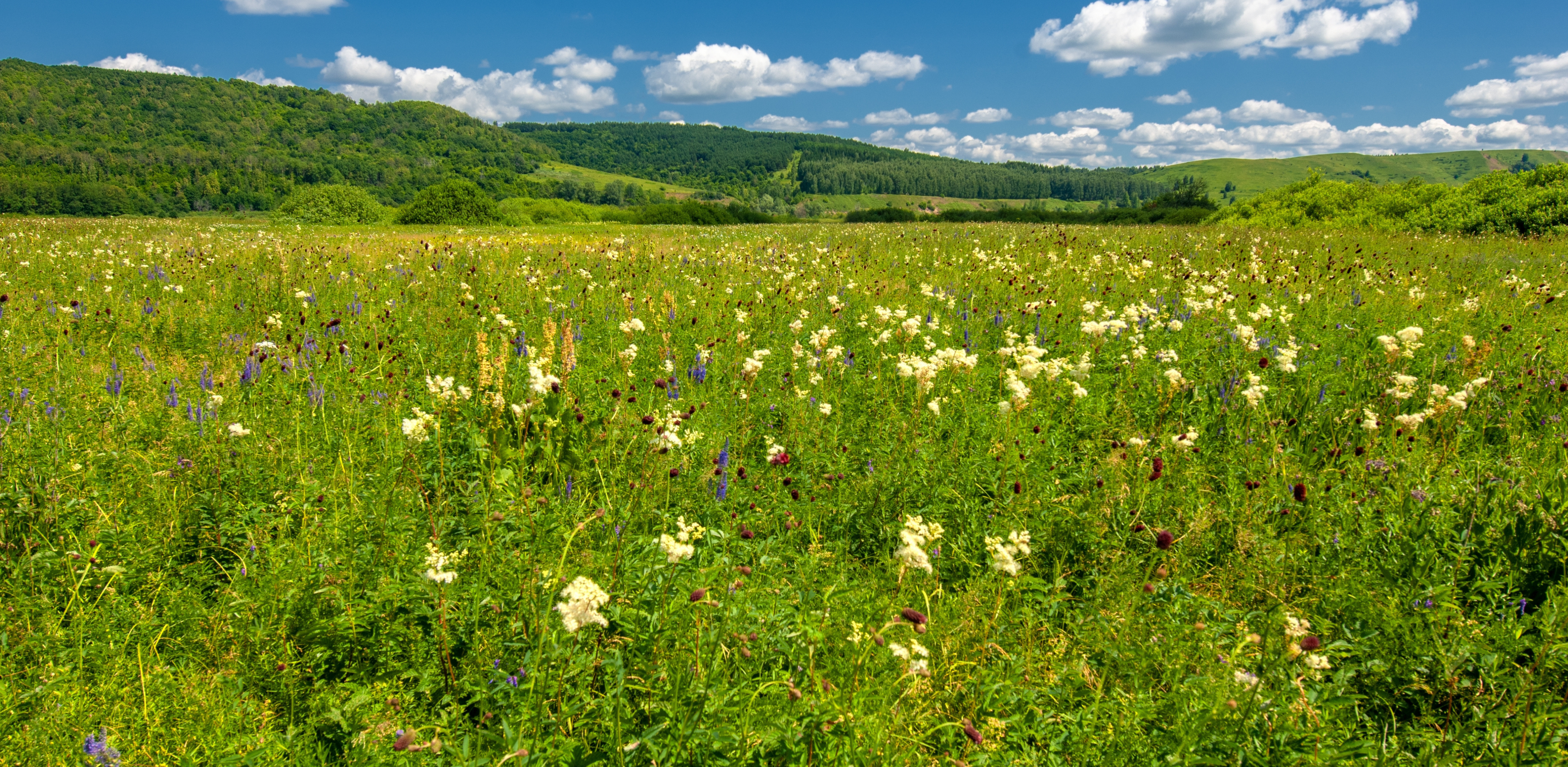New Great Britain-wide strategy sets out five-year vision for plant health and biosecurity
A new biosecurity strategy to protect plants from pests and diseases has been published (09-01-2023) by Defra, in partnership with the Forestry Commission and the Scottish and Welsh Governments. The Plant Biosecurity Strategy for Great Britain sets out a five-year vision for plant health, consisting of an action plan to secure national biosecurity and protect native species by reducing and managing risks from pests and pathogens. An analysis of the value of plants to the UK estimates £15.7 billion annually (crops, forestry, the mental health, nature, urban and cultural benefits of trees, carbon storage and also allotments), including £3.1 billion for woodland recreation and biodiversity.

Specific actions within the strategy include:
- Expanding the Animal and Plant Health Agency’s Internet Trading Unit to step up monitoring of online retailers and social media sites for the trade of high-risk plant products, to stop potentially devastating pests and diseases from entering the country.
- Public Engagement in Plant Health Accord whereby more than 30 signatories, including Defra, the Royal Horticultural Society, the National Farmers Union and the Woodland Trust, will work collaboratively to deliver an ambitious programme of behavioural change across society.
- How enhancements to the UK Plant Health Risk Register, which currently lists 1,200 pests and diseases of potential threat to our biosecurity, will improve understanding of complex and cumulative risks to plant health. As part of this, an array of new plant health IT systems will bolster outbreak preparedness and emergency response.
- Commitment to working with the UK Plant Health Alliance to develop a new five-year roadmap for the Plant Healthy certification scheme, which provides biosecurity certification to nurseries, businesses and charities operating in the horticultural sector.
- Importantly in terms of trees, more than £ 10 million is dedicated to investing in the quality, quantity and diversity of domestic tree, seed and sapling supply through the Nature for Climate fund. It is also highlighted that all trees planted on the public forestry estate are now UK grown, and have been for the past 3 years. This is a vital step to safeguard our existing and future trees, woodlands and treescapes from the increasing threat of inadvertently importing pests and diseases to the UK. These are welcome updates. We also need government to expand this requirement for UK-grown trees to all tree planting that it is funding and commitment to absolute quarantine for high-risk trees, where imports are unavoidable.

We welcome the launch of the Plant Biosecurity Strategy for Great Britain. Important recognition is given to the role of online retailers as an introduction risk for invasive plants and associated pests and diseases. Significantly, the strategy proposes to increase the level of collaboration between Defra and other organisations and industry in order to facilitate safe trade and reduce the risks posed by pests and diseases. Fundamentally, we need to see more support for UK-grown plants and a reversal of the reliance on imported plants and increased transparency around the origin of the material via labelling and awareness raising of the importance of this. There is not enough commitment within the strategy on this.
Throughout the paper climate change is acknowledged as a significant risk underlying the spread of new pests and diseases. An evidence-led approach is championed and key research priorities outlined include; horizon scanning, inspections, diagnostics, surveillance, resilience, management and social values. We welcome the commitment to strengthen and enhance the core research and surveillance programmes for plant health.
The publication of the GB Invasive Non-Native Species (INNS) Strategy in early 2023 follows this GB Plant Biosecurity Strategy and will set out coordinated actions across society to prevent the arrival of new INNS and tackle the impacts of those established.
Pest and diseases pose mounting threats to a multitude of sectors including our natural environments. The IBPES identifies Invasive Non-Native Species (INNS) as one of the five direct drivers of global biodiversity loss. Stopping and reversing nature loss requires us to tackle the impact of invasive species. The threat of climate change requires a significantly more effective approach to tackling INNS if we are to meet our nature restoration targets. How the Plant Biosecurity Strategy and the GB Invasive Non-Native Species (INNS) Strategy link into and are embedded into upcoming national strategies e.g. the Scottish Biodiversity Strategy and the Natural Environment Bill will be fundamental to successful outcomes.
